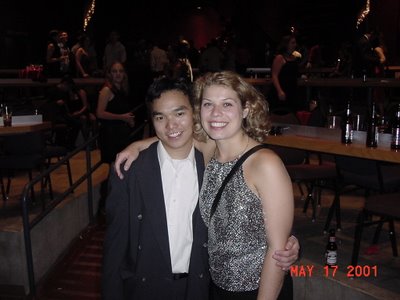"People quit people before people quit company." I'm not sure where I heard this first. When I tell others that I don't work for money, they'll snap back "yeah, but you're different". Am I? I might be on the extreme end of the spectrum, but I believe most people are--in most way--like me. We work because we feel appreciated; and that by working harder, we will learn more and therefore, the more we will be valued by our supervisors and our company.
Harvard Business Review, February 2005
Transforming an Industrial Giant
Harvard Business Review, April 2004
"First was the very simple message: Be number one or two in each business, or you will not be successful ... The second thing I admired about GE is that people are really the most important thing. I always wondered why they have such excellent people. Was it just that they pay more in the U.S.? I realized it was their people development program--Section C.": Heinrich von Pierer--CEO, Siemens AG
How Fleet Bank Fought Employees Flight
"The results of the analysis seemed to suggest that inadequate pay and heavy workloads were the key drivers for turnovers. Management tried to address some of these concerns by tracking market pay more systematically and by offering more flexible working arrangements ... Yet to Fleet's surprise, turnover rates continued to rise rapidly. Indeed, many companies have found little relationship between what employees--particularly departing employees--say motivates their behavior and what actually does.": Haig R. Nalbantian, Principal, Mercer Human Resources Consulting, and Anne Szostak, Executive VP and Director of Human Resources, FleetBoston Financial.
So Fleet utilized some kind of a "Design of Experiment" method by changing several variables and observing the impacts of the variable changes on turnover rates. The following is the top 5 variables that reduced Fleet's turnover ratio:
1. Promotion within the past year reduced turnover rate by 11%
2. Incentives reduced turnover rate by 8%
3. Continuity / same group supervisor within the past year reduced turnover ratio by 7.5%
4. High school educated employees on average had a turnover rate that is 5% lower than their college-educated counterpart.
5. 10% reduction in layoffs reduced turnover rate by 3%.
On the other hand, the following variables had less than 1% impact in reducing turnover rate:
15. 10% market pay adjustment
14. One-point increase in regional unemployment rate
13. One year increase in tenure
12. Increase in local market share from 10% to 20%
11. 10% reduction in worked / scheduled hours
Money does matter, but not as much as how it matters. Promotions and incentives go a long way in telling people how much they are valued, while a simple market pay adjustment might convey the message that "we have been underpaying you all along".










